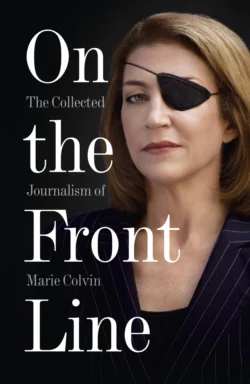On the Front Line: The Collected Journalism of Marie Colvin

Marie Colvin
Тип: электронная книга
Жанр: Зарубежная образовательная литература
Язык: на английском языке
Стоимость: 493.36 ₽
Издательство: HarperCollins
Дата публикации: 17.04.2024
Отзывы: Пока нет Добавить отзыв
О книге: RECIPIENT OF THE ORWELL SPECIAL PRIZE 2013Marie Colvin was the outstanding journalist of her generation. Recognised for her fearless pursuit of the truth, her courage and the humanity of her reporting, On the Front Line is a collection of her finest work, proceeds for which will go to the charitable Trust set up in her memory.Marie Colvin, who was killed in shellfire on 22 February 2012 whilst covering the uprising in Syria, was a fearless, passionate foreign correspondent, a veteran of many conflicts from around the world with a profound belief that reporting could curtail the excesses of brutal regimes and a powerful compulsion to go to places where bad things were happening. Often the first to arrive and the last to leave, her insistence on experiencing the risks of those she wrote about led to a vast portfolio of work for the Sunday Times – particularly on the Middle East, and on the human toll of war.But Marie Colvin was no hard-bitten cynic and combined her fearless pursuit of the truth with an immense love of life – sailing, friendship, children, parties – which gave her an ebullient charm, and her writing a powerful human depth.On the Front Line collects the finest pieces of Marie’s journalism starting with her coverage of the 1986 US bombing of Libya; interviews with Yasser Arafat; her reports from East Timor in 1999 when her refusal to leave shamed the UN into staying and the international community into forcing the Indonesians to give the refugees safe passage. Here too is her account of her terrifying escape from the Russians, across the freezing Chechen mountains, and her reports from the strongholds of the Tamil Tigers in Sri Lanka where she was hit by shrapnel in her left eye, losing her sight.Her death has robbed the world of a multi-prize-winning journalist and the victims of war have lost one of their most powerful advocates.